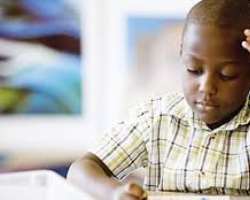When Will It Be the Turn of the Boy Child?

October 11 was observedas the International Day of the Girl Child, a day when we are supposed to address the issues facing the population group that is the most marginalised on earth – because of age and gender.
Activities was planned in observance of this day around the world, and I fully support its intentions to cast a spotlight on the myriad issues confronted by girl children – like child marriage, circumcision, neglect and marginalisation.
I hope that the relevant issues raised on this day will continue to be addressed, rather than having it deteriorate into another excuse for spa treatments and chocolates, like Women's Day!
By the way, when will it be the turn of the Boy Child? Why the discrimination against the boys? Or, what is it about the girl-child that has to be isolated and be made to feel inadequate, hence, the need for special protection and celebration?
However, it should be noted that, girls cannot be educated in isolation and taught to claim their basic human rights without bringing their brothers along with them. And while this obviously applies to all those areas in communities where girls and women are marginalised, it should also be considered in all the subtle ways that we educate our privileged sons about their roles in the world.
From a very young age, boys are taught that to be male is to be strong, not to show weakness, to be brave and not to come running to mummy. Some of this messaging is good, if it is applied to both genders of children to foster a degree of independence and self-confidence. But often, mothers and fathers unconsciously push their boys into becoming exactly the kind of men who will continue to demean women, because we do not know how to think any differently.
I have seen girls instructed to clear the table while boys sit idly by, or boys told to “hit him back” while girls are helped to debate a solution to a playground altercation. I have also seen boys prevented from playing with their sisters' prams and dolls for fear that they will become sissies. Shouldn't we, as parents, instead be encouraging their interest in the hopes of breaking the cycle of fathers who are disinterested in their babies until they are walking, talking beings?
Gender equity, as internationally recognised, refers to the practice of fairness and justice in the distribution of benefits, access and control of resources, responsibilities, power, opportunities and services. Thus, even as we harp on empowering the disadvantaged girl-child, let us also remember the boy-child. We could begin with an International Day of the Boy-Child.
So, while there are broader, more significant issues that should be addressed on International Day of the Girl Child, I will be treating both my children equally, teaching them to love and share and coexist regardless of what gender they are.
